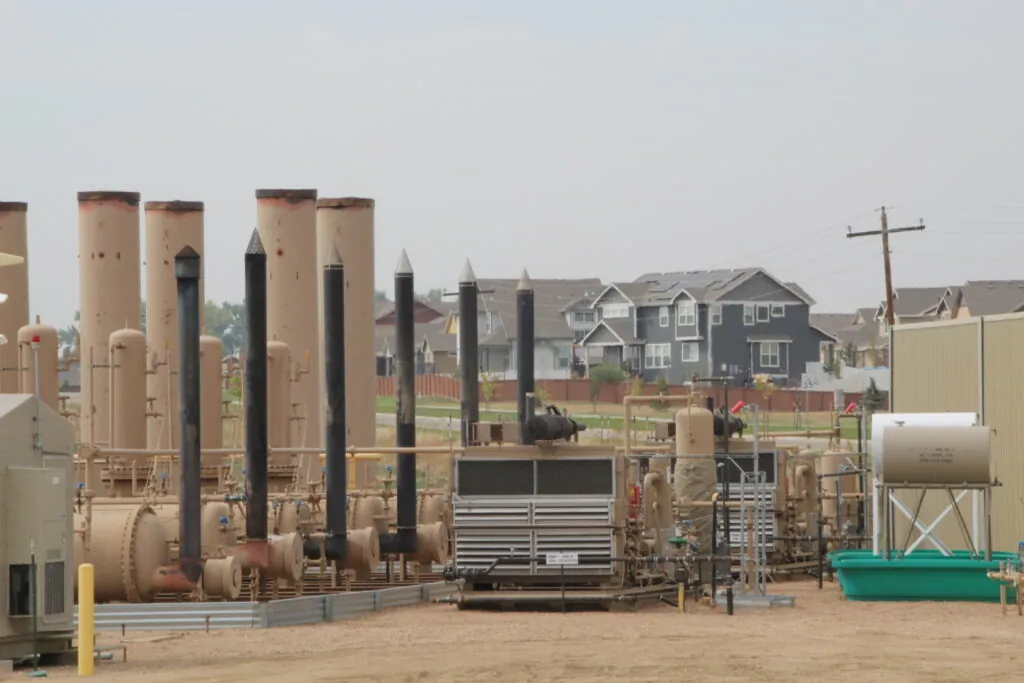|
Getting your Trinity Audio player ready...
|

Remember when fossil fuel companies like Exxon, TotalEnergies, and EQT, and their trade associations were proudly and very publicly applauding federal and state government efforts to curb methane emissions? In 2022, the American Petroleum Institute (API) – a trade association that represents many of the world’s largest oil and gas producers – claimed to support “the direct regulation of methane” at the state and federal level. As recently as 2024, they emphasized that “our member companies have been increasing their capabilities to design facilities to deploy technologies and to deploy other capabilities to reduce methane emissions.”
Well, put to the test, oil & gas companies have either cowered from their better angels or, more likely, shown their true colors when Trump issued a recent series of Executive Orders aimed at giving polluters more reign to pollute.
New President, New Tune
Early this year, the Environmental Protection Agency announced the “biggest deregulatory action in US history.” The announcement included a memo stating the agency would “no longer focus on methane emissions from oil and gas facilities,” leaving that effort solely in the hands of states. The Trump Administration also announced plans to stop collecting greenhouse gas emissions data from many polluting facilities altogether.
Then, on April 8th 2025, the Trump Administration announced an Executive Order aimed at dismantling those state powers as well. The Executive Order, titled “Protecting American Energy From State Overreach,” this unenforceable, arbitrary, and potentially unlawful effort threatens states enforcing their constitutional right to protect their residents from health and climate harming pollution.
And how has the industry, which claimed to support these measures just months ago, responded?
In the case of API, rules they once said would “carry us into the future” they now refer to as “activist-driven campaigns” preventing industry production. In a statement for Politico, Ryan Meyers, API Senior VP and General Counsel, applauded the effort and encouraged the Department of Justice to take extreme measures to stop states from enforcing some of the only remaining pollution safeguards for the sector.

While the rest of the fossil fuel industry has remained silent on the subject, that silence should not be mistaken for a lack of involvement. Trump’s Executive Order comes just weeks after executives from fossil fuel companies, including Exxon, Chevron, ConocoPhillips, and Hess Energy, met with the Trump administration to address concerns about state laws. Under the Biden administration, however, Exxon and Occidental Petroleum (among others) had previously claimed support for state and federal efforts to curb emissions from their fossil fuel facilities.
History has shown that unless forced, industry trade groups like API, and the fossil fuel companies that make up their membership, will not do what is necessary to cut climate and health-harming pollution. This industry has proven this time and time again: oil & gas companies must be made – by governments and public pressure – to prioritize reducing harm to the health of people and communities.
From the amount of money the fossil fuel industry has put into managing their public perception around climate, we know that- for a while at least- oil & gas companies wanted to be seen as supportive of action to stop climate catastrophe and harm to communities. Under the Biden administration, when federal methane rules were introduced, they acted more compliant and leveraged the opportunity to ‘future-proof’ further investments. Back then, they voiced support for methane rules and made claims about efforts they were already taking.

Now, obviously, administrations have changed. While public support for climate action remains high, actions taken by the Trump administration suggest there will be little federal accountability to ensure corporate reduction of pollution. The actions by API to support this administration and the silence from other oil & gas executives reveals plainly to anyone who is watching: profit- regardless of the harm to people on the fencelines and future generations- is the priority for oil & gas.
For the sake of health and climate, we must all move to make clear that oil & gas companies have done more than enough to lose their social license to operate.
